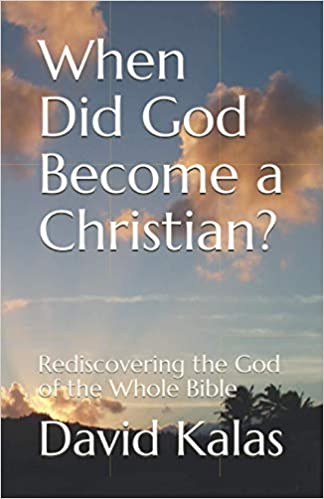Week Eighteen Reading Assignment:
2 Chronicles 25 - Nehemiah 1
"In this Holy Scripture, the universal Church of Christ has all things fully expounded which belong to a saving faith, and also to the framing of a life acceptable to God... We judge, there-fore, that from these Scriptures are to be taken true wisdom and godliness, the reformation and government of churches; as also instruction in all duties of piety; and, to be short, the confirmation of doctrines, and the confutation of all errors."
(The Second Helvetic Confession, 1566)
(The Second Helvetic Confession, 1566)
This Week's Teaching Video:
|
This Week's Teaching Video:
|
making progress
Good Book Review:
|
What to Watch for This MonthReflect on the obstacles that face God’s people in Ezra, Nehemiah, and Esther. Consider the interplay of human malevolence, human failure, and ordinary circumstances.
The old hymn suggests a two-part key for God’s people: “trust and obey.” As you read Ezra, Nehemiah, and Esther, evaluate how well the people in those stories trusted and obeyed. Consider what would have been different if either element were increased or decreased. Nehemiah and Esther are both prominent in the books named after them. Help yourself put flesh and blood on them by pondering their personalities. Does he or she remind you of someone you know? If you had lived then, would you have been friends? Would you have sup-ported the decisions and choices that he or she made, or the methods that he or she used? In what ways are you like him or her? As you read the remarks of Job’s friends, watch for what they say that is untrue. The Book of Job depicts the suffering of a righteous man. Based solely on your reading of this book, answer two ques-tions. Why do the righteous suffer? How do the righteous suffer? Evaluate God’s words and Job’s reply. As you begin to read the Psalms, gene-rate your own list of genres. Do not rely on footnotes, explanations, subtitles or resources in your Bible, but categorize each Psalm based on your own reading of it. Don’t begin with any categories — let the Psalms themselves suggest the categories. As always, it may be helpful to ask at the end of a day's reading: “If I didn’t know anything about God except for what I read today, what would I know?” "After having sought for truth with some diligence for half a century, I am at this day hardly sure of anything but what I learned from the Bible."
(John Wesley) |
Is My Name Written There?(Part 3)The Book of Ezra ends rather strangely, at least by our standards. The book includes accounts of significant and even dramatic events, as well as heroic faith and faithfulness. But then the ending seems somewhat anticlimactic by comparison. The book ends with a long list of the names of men who had married women they probably should not have married.
Do we really need to know the names of these men? No, I doubt it. Then why should they be included in the Bible? It seems a rather trivial and extremely localized matter to be given such a place of prominence. While the people involved are all unknown to us and their names unfamiliar, their inclusion in the text is a sort of object lesson for the reader. We may be reminded, for example, of two names that Paul includes in his letter to the Philippians. "I urge Euodia and I urge Syntyche," he writes, "to live in harmony in the Lord" (Philippians 4:2 NASB). Unlike the men named in Ezra, we don't know what the situation was with Euodia and Syntyche. The context suggests that there was some strife between them, and so the apostle urged them to be of the same mind. Like the men of Ezra, they are otherwise unknown individuals whose names are included in Scripture because of a fault that needed to be corrected. Rather than dismissing these strange inclusions as trivial, perhaps our reflex should work the other way around. Perhaps, instead, the inclusion of these names should help us to elevate matters in our own lives that we might otherwise think are trivial. For these names made it into God's written word, which means that those people and what they were doing was not unnoticed and not unimportant. Neither, then, are the things we do which may grieve the heart of God or betray His will. The lesson is not altogether negative, however. We think, for example, of two other names that we came across many weeks ago. Shiphrah and Puah (Exodus 1) were Hebrew midwives during the period of Israel's bondage in Egypt. They revered and honored God, even when it meant disobeying the Pharaoh, and their names are included as heroines in the story. All of which is to say that the biblical narrative is not limited to famous people and big events. It includes little known or unknown people, and it includes some rather small events. That is instructive to us, because it serves to include us. Like the widow's mite, heaven knows and sees what we do, whether large or small, whether famous or anonymous. |

